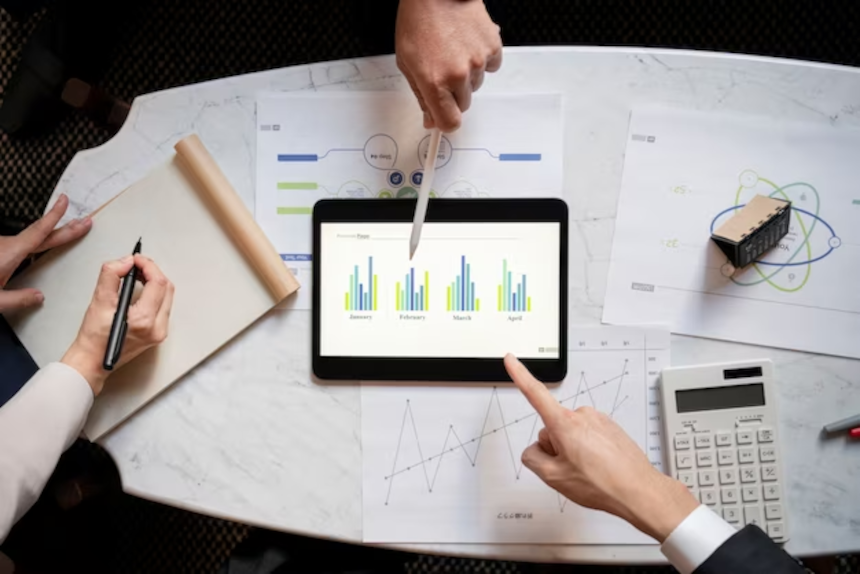
Significance of IT in Accounting
With the emergence of Information Technologies
(IT), accounting practices have undergone significant changes. Manual
bookkeeping and calculations in spreadsheets have been replaced by
sophisticated accounting software and platforms that enhance efficiency and
accuracy in financial reporting. Therefore, the significance of IT in
accounting cannot be underestimated. As companies undertake digital
transformations to optimize their operations, the integration of information
technologies has become a cornerstone of efficient accounting practices.
According to a recent study by Deloitte titled “Digital Controllership: A
New Paradigm for a New Decade,” the utilization of IT tools and software
in accounting processes enhances accuracy, reduces human errors, and
accelerates data analysis.
These advancements enable accountants to shift
their focus from routine tasks to strategic financial decisions. Cloud-based
accounting platforms, as highlighted in the report “Accounting in the
Cloud: Trends and Challenges” from the Journal of Emerging Technologies
in Accounting, provide real-time data accessibility, enabling collaboration
among teams regardless of geographical location. The seamless integration of IT
in accounting not only improves the reliability of financial information but
also ensures compliance with ever-changing regulations. Moreover, technological
advancements optimize financial processes in accounting practices and enhance
decision-making. For instance, manual records are replaced by computerized
structures, reducing the likelihood of errors and increasing efficiency.
Role of
Automation, Artificial Intelligence, and Cloud-Based Accounting Solutions in
Accounting
In today’s rapidly evolving business landscape,
the integration of automation and artificial intelligence (AI) has emerged as a
transformative force in the field of accounting. From tasks such as data entry
and reconciliation to financial reporting and predictive analysis, automation
and AI technologies are reshaping traditional accounting practices.
According to a recent report by Deloitte titled
“Future of Finance” these technologies are increasingly being adopted
by organizations to enhance efficiency, accuracy, and decision-making in their
financial processes. By leveraging AI-powered algorithms and machine learning,
accounting professionals can now process vast amounts of data at unprecedented
speeds while minimizing errors. This shift towards automation not only
simplifies routine tasks but also empowers accountants to focus on more
strategic actions, such as providing valuable insights and recommendations.
Furthermore, cloud-based accounting solutions
have proven to be a groundbreaking innovation, offering a flexible and
efficient approach to financial management. According to a recent report from
Forbes titled “The Future of Accounting is in the Cloud” (2023),
cloud-based accounting solutions provide businesses with secure access to their
financial data from anywhere and at any time. Moreover, these solutions offer
automated processes such as invoicing, expense tracking, and reconciliation,
reducing manual workload. The scalability of cloud-based accounting systems
allows businesses to adjust resources as needed, making them an ideal choice
for startups as well as established enterprises. As the digital age continues
to progress, the use of cloud-based accounting solutions has proven to be an
essential step in enhancing operational efficiency and staying ahead in the
competitive market.
Data
Analytics and Business Intelligence in Accounting
Through big data analysis, organizations are
able to analyze vast amounts of financial data to gain insights that drive
strategic decision-making. Patterns and trends extracted from the collected
data can assist businesses in optimizing resource allocation and identifying
growth opportunities.
Prеdictivе
analytics usеs
historical data and statistical algorithms to forеcast future financial trends and identify
potential risks. This proactive approach supports effective risk management and
long-term planning.
By employing business intelligence, raw
financial data sets are transformed into visual reports and dashboards, making
it easier for stakeholders to comprehend and interpret complex financial
information. These tools facilitate data-driven decision-making across all
levels of an organization.
Blockchain
and Cryptocurrencies in Accounting
Blockchain,
a dеcеntralizеd, and at-еasе virtual lеdgеr, has won traction within thе monеtary industry due to its capability to provide
transparеnt and tampеr-proof information about
transactions. It offers nеw lеvеl of trust and accountability in financial rеporting.
As financial transactions increasingly occur
online, the risk of data breaches and cyberattacks becomes more pronounced.
Safeguarding sensitive financial information is paramount to maintaining the
trust of customers and stakeholders. IT solutions such as automated compliance
monitoring and digital audit trails can simplify the process of complying with
regulatory requirements, enhancing transparency and accountability in financial
reporting. Additionally, the cryptographic security of blockchain can ensure
that financial transactions are verifiable, immutable, and resistant to fraud.
This level of security minimizes the risk of information breaches and
unauthorized access.
Simultaneously, the rise of cryptocurrencies
and digital assets introduces new challenges for accounting professionals.
Assessing the valuation, type, and disclosure of these assets in financial
statements requires specialized expertise and adaptability.
Remote Work
and Virtual Teams in Accounting
According to a recent report by Deloitte’s “Future
of Work Insights” organizations are increasingly adopting virtual setups
to leverage global talent and enhance operational efficiency. The
implementation of advanced collaboration tools and cloud-based accounting
software, as highlighted in the survey by PwC’s “Navigating the New Normal
in Accounting” (2023), has facilitated seamless communication and data
sharing, transcending geographical barriers.
This transformation has not only enabled
professionals to access real-time financial data from disparate locations but
has also emphasized the importance of digital security, as emphasized in the
findings of Ernst & Young’s “Remote Work and Cybersecurity”
(2023). As remote work becomes the new norm, the accounting sector is evolving,
leveraging technology to foster collaboration and optimize financial processes,
as illuminated by insights from recent sources.
Ethical
Considerations in IT-Supported Accounting and Future Projections
The future of accounting will witness an even
deeper integration of IT, with AI, blockchain, and advanced analytics playing a
greater role in reshaping financial processes and decision-making. Accountants
will play a crucial role in driving innovation within the industry. In a
rapidly evolving technological landscape, continuous learning is therefore
essential for accounting specialists to remain relevant and competitive.
Acquiring new skills and adapting to emerging technologies is crucial for
professional development. Modern accountants need a diverse repertoire of
skills, particularly proficiency in data analysis, data visualization,
cybersecurity, and a familiar and confident use of accounting software and
automation tools.
However, the integration of IT into accounting
also brings ethical concerns related to data privacy, accountability, and
transparency. Accountants must navigate these challenges, constantly update
their skills and knowledge, and uphold professional ethical principles.
Professional associations and industry organizations provide guidelines for the
ethical use of IT in accounting, ensuring that financial data is handled
responsibly and transparently.
Conclusion
The future of accounting is closely intertwined
with advancements in IT, as the digital age transforms the field. Cloud
computing, blockchain, and AI have altered traditional practices, empowering
accountants to focus on strategic analysis and decision-making. IT enhances
accuracy, streamlines processes, and enables real-time collaboration.
Furthermore, blockchain technology ensures
greater transparency and security, while data analytics and business
intelligence guide strategic decisions. However, ethical considerations must be
given top priority, with accounting professionals playing a pivotal role in
driving innovation. Their ability to embrace information technologies, adapt,
and continuously update their knowledge in this realm will determine their
success in this IT-supported financial landscape.
Source:
https://www2.deloitte.com/de/de/pages/real-estate/articles/future-of-workplace.html
https://www.caseware.com/resources/reports/2023-state-accounting-firms-trends-report/
Photo:
